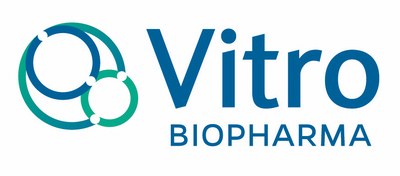AlloEx®: A Comprehensive Analysis of Secretomes for Advanced Dermatological Applications
The scientific community is increasingly delving into the nuanced realms of secretomes, due to their nature of cellular communication and potential applications in regenerative medicine. These microscopic entities, which are potential essential players in intercellular signaling and tissue regeneration, have received significant attention for their possible therapeutic potential.
Exosomes Secreted by the Cocultures of Normal and Oxygen–Glucose‐Deprived Stem Cells Improve Post‐stroke Outcome
Emerging stroke literature suggests that treatment of experimentally induced stroke with stem cells offered post-stroke neuroprotection via exosomes produced by these cells. Treatment with exosomes has great potential to overcome the limita- tions associated with cell-based therapies.
Mesenchymal Stem Cell Treatment Prevents Post-Stroke Dysregulation of Matrix Metalloproteinases and Tissue Inhibitors of Metalloproteinases
Stem cell treatment is one of the potential treatment options for ischemic stroke. We recently demonstrated a protective effect of human umbilical cord blood-derived mesenchymal stem cells (HUCB-MSCs) in a rat model of ischemic stroke.
Stem Cell Treatment After Cerebral Ischemia Regulates the Gene Expression of Apoptotic Molecules
Evidence suggests that apoptosis contributes significantly to cell death after cerebral ischemia. Our recent studies that utilized human umbilical cord blood- derived mesenchymal stem cells (hUCBSCs) demonstrated the potential of hUCBSCs to inhibit neuronal apoptosis in a rat model of CNS injury.
Stem Cell Therapy Decreases Covid Deaths
Several clinical studies report increased patient survival following the intravenous infusion of mesenchymal stem cells (MSCs) during the past year. MSCs block the cytokine storm in the lungs and also regenerate cells and tissues damaged by the COVID-19 virus. MSCs are not vaccines and work differently in the treatment of COVID-19.
Stem Cell Activation by Natural Products
Bone marrow stem cell therapies, based on transplant of hematopoietic stem cells (HSCs) have been used for over 50 years in the treatment of blood disorders including leukemia, lymphoma, and auto-immune disorders. Embryonic stem cells (ESCs) were discovered in the late 1990’s by Evans, Kauffman, and Martin. J Thompson developed procedures to isolate and expand ESCs from human embryos. Since ESCs could differentiate into any cell in the body, this expanded application of stem therapy to include broad areas in disease treatment and regenerative medicine.
Comparison of Adipose Stromal Vascular Fraction and Placental Cell Extract
Multipotent mesenchymal stromal/stem cells (MSCs) have the potential to repair and regenerate damaged tissues, making them attractive candidates for cell-based therapies. Expanded and well-characterized MSCs have application in regenerative medicine and have been used in several clinical trials including osteoarthritis and other conditions,
Comparative Analysis of Adult Mesenchymal Stem Cells
Mesenchymal stromal/stem cells (MSCs) have the potential to repair and regenerate damaged tissues, making them attractive candidates for cell-based therapies. Expanded and well-characterized MSCs have application in regenerative medicine and have been used in several clinical trials including treatment for osteoarthritis and other conditions.
Stem Cell Therapy: The Good, the Bad & the Ugly
Recently the FDA issued permanent injunctions against stem cell clinics using a type of stem cell product called Stromal Vascular Fraction (SVF). This product (“The Bad”) is derived from fat retrieved from a patient by liposuction. It is then digested by enzymes, washed and filtered to yield SVF. It is injected back into the patient receiving the liposuction for various therapies.
Anti-Aging Effects of AlloRx Stem Cell Therapy & Stemulife
As we age, our cells get sick and die. When a cell dies, it creates a cascade of events, leading to inflammation and disease that can decrease lifespan. Many environmental factors accelerate aging such as stress, pollution, lifestyle, injuries, disease, and exposure to toxins. A recently published study reviewed evidence that delaying and reversing aging in cells is feasible. Epigenetic changes drive aging and reversal of these changes extend lifespan1.

